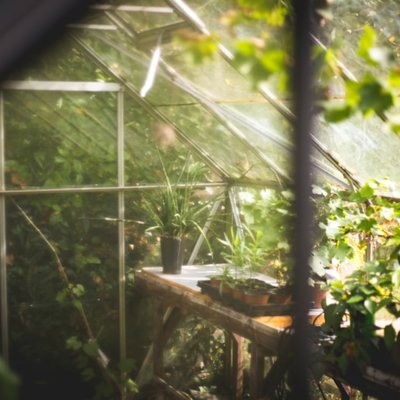plant(
plahnt
)A noun is a word referring to a person, animal, place, thing, feeling, or idea (e.g., man, dog, house).
1. (botany)
2. (factory)
a. la planta (F)
(f) means that a noun is feminine. Spanish nouns have a gender, which is either feminine (like la mujer or la luna) or masculine (like el hombre or el sol).
A new petrochemical plant was inaugurated outside the city.Se inauguró una nueva planta petroquímica en las afueras de la ciudad.
b. la fábrica (F)
(f) means that a noun is feminine. Spanish nouns have a gender, which is either feminine (like la mujer or la luna) or masculine (like el hombre or el sol).
The company plans to open new plants in China.La empresa tiene programado abrir nuevas fábricas en China.
3. (equipment)
a. la maquinaria (F)
(f) means that a noun is feminine. Spanish nouns have a gender, which is either feminine (like la mujer or la luna) or masculine (like el hombre or el sol).
We had to hire plant from a specialized company.Tuvimos que alquilar la maquinaria a una empresa especializada.
4. (agent)
a. el infiltrado (M), la infiltrada (F)
(m) means that a noun is masculine. Spanish nouns have a gender, which is either feminine (like la mujer or la luna) or masculine (like el hombre or el sol).
(f) means that a noun is feminine. Spanish nouns have a gender, which is either feminine (like la mujer or la luna) or masculine (like el hombre or el sol).
We discovered there was a plant in the group thanks to the microphones we installed in the office.Descubrimos que había un infiltrado en el grupo gracias a los micrófonos que instalamos en la oficina.
b. el espía (M), la espía (F)
(m) means that a noun is masculine. Spanish nouns have a gender, which is either feminine (like la mujer or la luna) or masculine (like el hombre or el sol).
(f) means that a noun is feminine. Spanish nouns have a gender, which is either feminine (like la mujer or la luna) or masculine (like el hombre or el sol).
I suspected she was a plant, but played along with her plan.Sospechaba que era una espía pero le seguí el juego.
A transitive verb is a verb that requires a direct object (e.g., I bought a book.).
5. (to grow)
Spring is the best season to plant most flowers.La primavera es la mejor estación para plantar la mayoría de flores.
b. sembrar (seeds or a field)
Plant the seeds 10 centimeters apart.Siembre las semillas a intervalos de 10 centímetros.
a. poner a escondidas (an object)
They had planted some cocaine in his suitcase.Habían puesto a escondidas cocaína en su maleta para inculparlo.
7. (colloquial) (to place firmly)
A word or phrase that is commonly used in conversational speech (e.g., skinny, grandma).
a. plantar (colloquial)
A word or phrase that is commonly used in conversational speech (e.g., skinny, grandma).
His grandmother planted a kiss on his cheek.Su abuela le plantó un beso en la mejilla.
An intransitive verb is one that does not require a direct object (e.g., The man sneezed.).
Examples
Machine Translators
Translate planted using machine translators
Conjugations
Other Dictionaries
Explore the meaning of plant in our family of products.
Random Word
Roll the dice and learn a new word now!
Want to Learn Spanish?
Spanish learning for everyone. For free.























